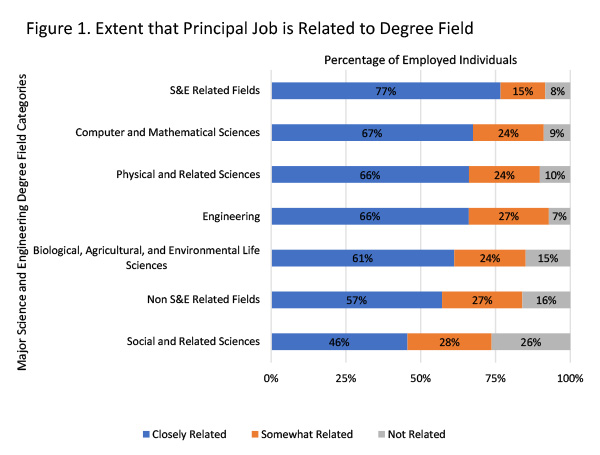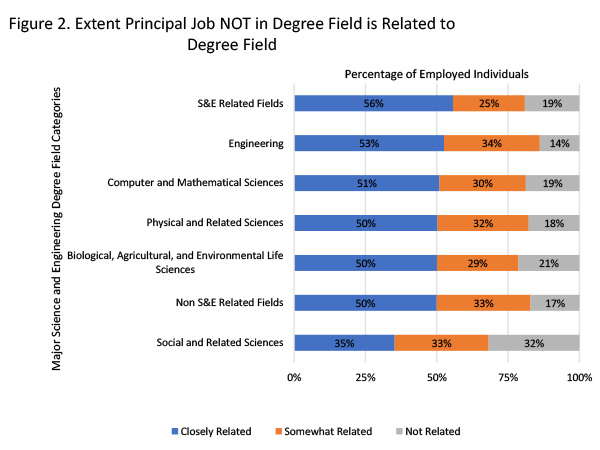SURVEY: MOST ENGINEERS WORK IN JOBS RELATED TO THEIR DEGREE
By Carolyn Wilson
Reprinted from ASEE Connections
The December 2019 Connections Databyte highlighted the transferability of skills gained by engineering graduates by showing how these graduates were distributed across the science and engineering workforce. Using data from the National Science Foundation’s 2017 National Survey of College Graduates, it compared the distribution of engineering graduates with that of graduates in other fields. The data presented here come from the same survey. They illustrate the extent to which scientists’ and engineers’ principal job was related to their degree field. The survey asked participants if their principal job was closely related, somewhat related, or not related to the field of their highest degree.
Figure 1 displays the extent that individuals felt their principal job was related to their degree field by the major categories of their degree field. More than 90 percent of individuals with degrees in engineering, computer and mathematical sciences, and science and engineering-related fields felt their jobs were either closely related or somewhat related to their degree field. Engineering graduates had the highest combined percentage of 93 percent. Overall, except for individuals with degrees in the social or related sciences, a majority of trained scientists and engineers had a primary job that they felt was related to their degree field. Figure 2 filters out individuals whose primary job is within the same field as their highest degree. The graph displays the extent to which individuals felt their principal job, although not within the same field as their degree, was nonetheless related to their degree field. More than 50 percent of individuals with degrees in engineering, computer and mathematical sciences, and science- and engineering-related fields felt their jobs were closely related to their degree, and 87% of individuals with an Engineering degree felt their job was either closely related or somewhat related to engineering, even though the job was not an engineering occupation. These responses connecting principal jobs with science and engineering degrees again highlight the transferability of skills and knowledge gained from these degrees. This is particularly true for engineering graduates, whether or not they are working within an engineering occupation.
https://www.asee.org/papers-and-publications/blogs-and-newsletters/connections


